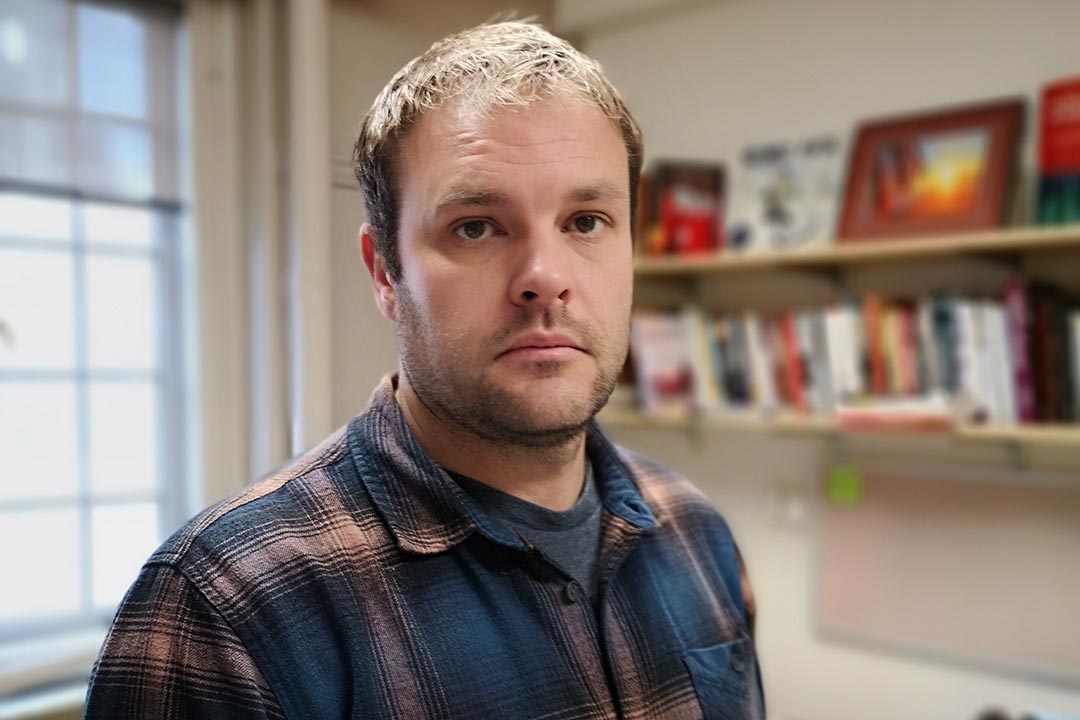
Indigenous gangs, street lifestyle focus of new Canada Research Chair
SASKATOON – University of Saskatchewan (USask) researcher Dr. Robert (Bobby) Henry (PhD), whose work on Indigenous street gangs and lifestyles is internationally recognized, has been awarded a Tier 2 Canada Research Chair (CRC) in Indigenous Justice and Well-being.
Tier 2 CRCs, worth $120,000 annually for five years, are awarded by Canada’s three major granting agencies to exceptional emerging researchers who are recognized by peers for their potential to be leaders in their field.
Henry, an assistant professor in Indigenous Studies at USask’s College of Arts and Science, and the executive director of the Saskatchewan Network Environments of Indigenous Health Research (SK-NEIHR), aims to improve public understanding of street gangs and lifestyles through community-engaged research, and to inform policies that can reduce the “hyper-incarceration” of Indigenous persons.
He wants to understand the complexities of gang involvement by viewing it through a lens of “survivance”—a term that encompasses survival, resistance and resurgence.
“Survivance is a strength-based approach to understanding the process of an individual becoming involved and leaving street gangs,” Henry said. “Some Indigenous individuals use gangs to survive settler colonialism and see gangs as a resistance space. When leaving these violent spaces and lifestyle, they look to resurge a positive identity.”
Henry, who is Métis, is working with non-profit organizations—STR8 UP in Saskatoon and Ogijiita Pimatisiwin Kinamatwin (OPK) in Winnipeg—to “shoulder tap” youths and adults with gang experience to establish a gender- and age-representative community advisory committee.
While the CRC will train highly qualified personnel (HQP) from USask, Henry said a major focus will be the community advisory group, which will inform him about local street politics and specific research the communities want.
He plans to use photovoice, digital storytelling, and body-mapping that have proven effective in past research projects, as well as interviews and focus groups to examine the life histories of Indigenous peoples engaged in gang and street life.
With little community-involved research done so far with Indigenous gangs, Henry said, much of what is presumed about these groups is based on street gangs in the United States, and creates misconceptions.
“People say once an individual is in an Indigenous gang, they are in it for good. However, most are in for a really short time,” he said. “When we look at who is or isn’t in an Indigenous gang, mostly what we see are a lot of individuals performing in a specific way to get their names known to get into the gang.”
Both males and females engaged in gangs perform masculinity— conveying a tough, non-emotional image they believe society expects, he said. Masculinity is tied to the concept that toughness brings power, which brings money, which brings respect, Henry said.
The idea that people join gangs because it gives them a sense of belonging is simplistic, he said. Rather, many already have a sense of belonging because they are born into, or have kinship links to, gang-involved individuals. What they want is power, money and respect.
Indigenous gangs are individual entities that are often linked by name only, Henry said. However, gang members across the Prairies are frequently linked through kinship or such ties as shared foster care residency in the past.
Henry wants to bring together community agencies from Saskatoon, Regina, Winnipeg, Calgary, Edmonton and even Thunder Bay, Ont., to share information and build a strong Prairie Survivance Network to help develop effective local policies to improve justice and overall community well-being.
“By the end of five years, I hope to understand the street lifestyle from the ground up, and expand the Prairie network to other national and international partnerships in places like Australia and New Zealand with whom I’m already doing some work,” Henry said.
-30-
For media inquiries, contact:
Victoria Dinh
Media Relations Specialist
University of Saskatchewan
306-966-5487
victoria.dinh@usask.ca

